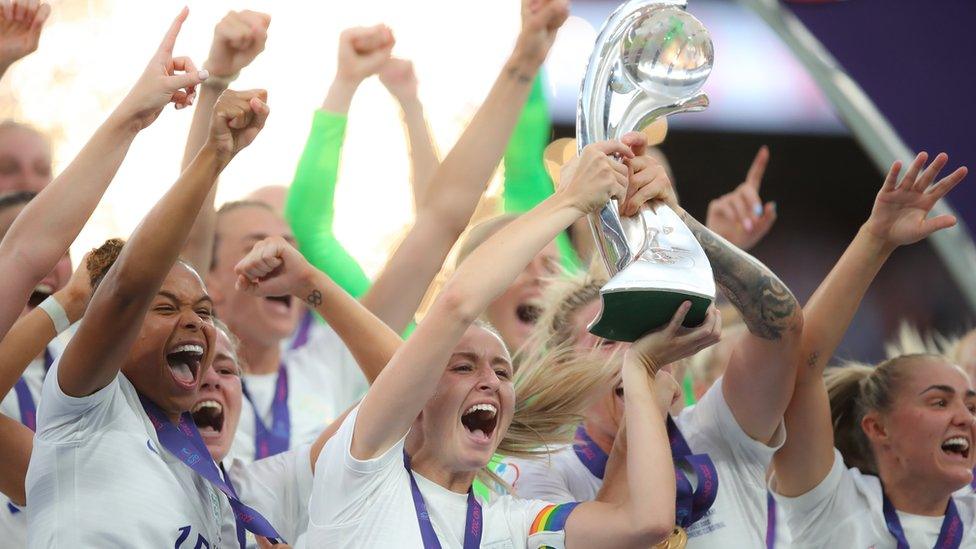Euros win helps me 'feel more accepted' playing football
- Published
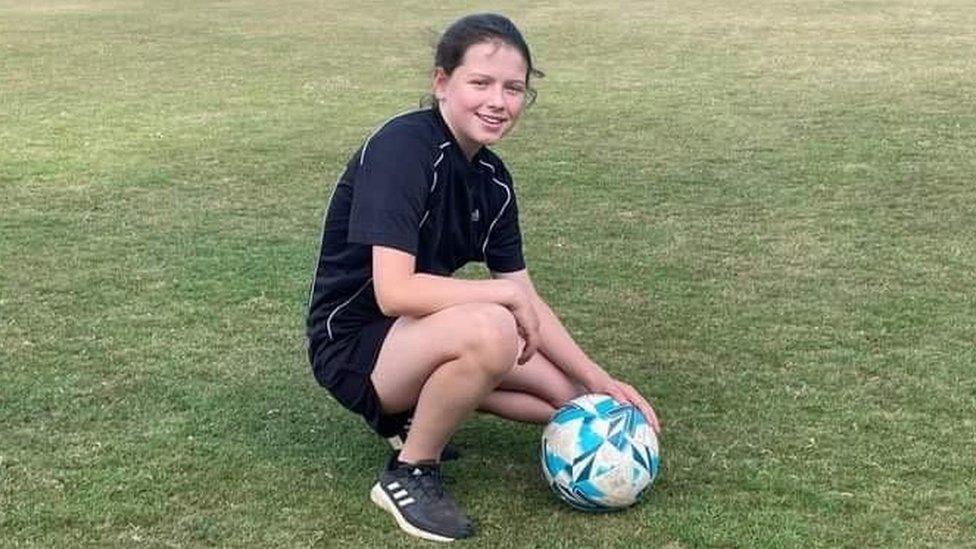
Julie said Lacey’s nan "loved watching women’s football but no-one ever really supported it then"
A 12-year-old, who was the only girl in her primary school football team, said she hoped she would be "more accepted now" after the Lionesses' Euros win.
Lacey, from North Somerset, was scouted by Future Stars during a match but in the pandemic she became too old for the team she was playing with.
She said watching England's women's team win the Euros made her "so happy".
Her mother Julie said she hoped the win would change attitudes towards girls playing football.
She said: "So often people see Lacey playing out and about and say 'ooh she's a right tomboy' but actually no, it's just her doing what she enjoys doing."
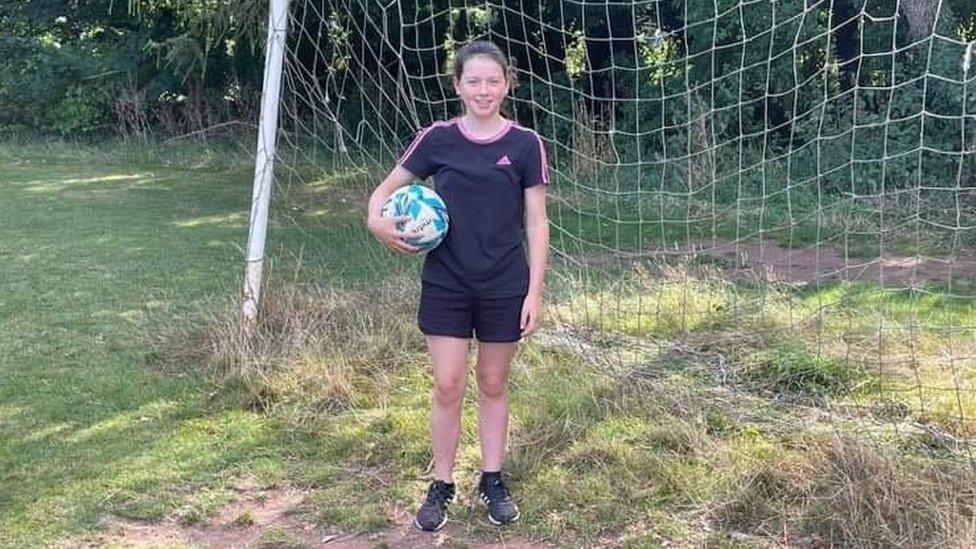
Growing up Lacey was "always the one outside playing football," her mother said
She said family and friends were used to seeing Lacey with a football, as "it's all she does".
"When we went to watch England playing at the local cricket club the family were all having fun saying 'this could be you soon Lacey'."
Lacey said watching the women's success made her "want to do that when I'm older".
"I just like being outside, part of a team, kicking the ball around."
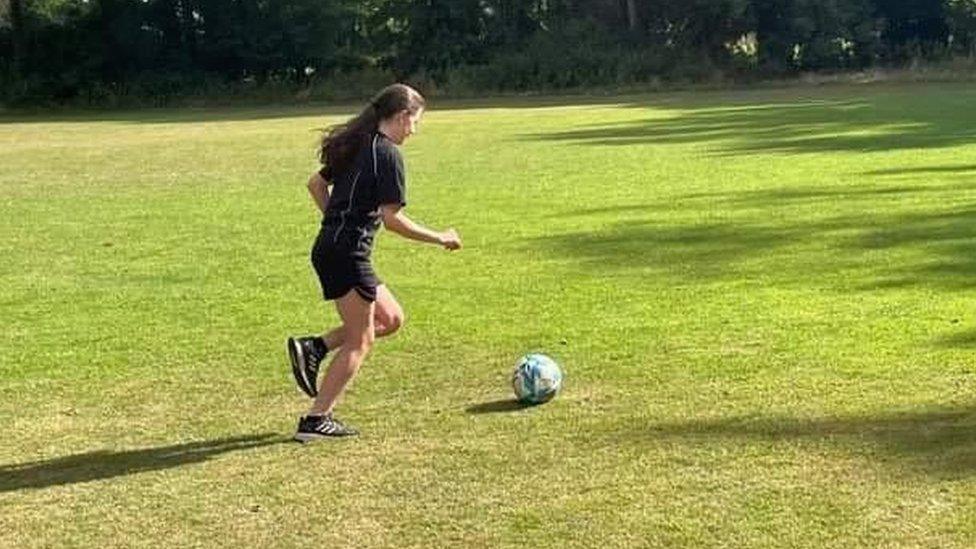
Lacey's mother said Lacey had always played football with her father and boys were impressed when they saw her playing
Her mother said the game was already a long way from just a few years ago when Lacey's coach "had to get permission for her to play" on the school team.
She now plays for her senior school football team and Julie hopes they can find her a great team to train with outside school that will "challenge" her.
Lacey told her mother after Sunday's final she would "feel more accepted now and it would look more normal for girls to play".
Julie said she hoped people could see Lacey with a football "and know that's just her and to accept girls play football... It's not a weird thing".
A report by England Football, part of the FA, claimed that only 44% of secondary schools in England, external offer girls equal access to football in PE lessons.
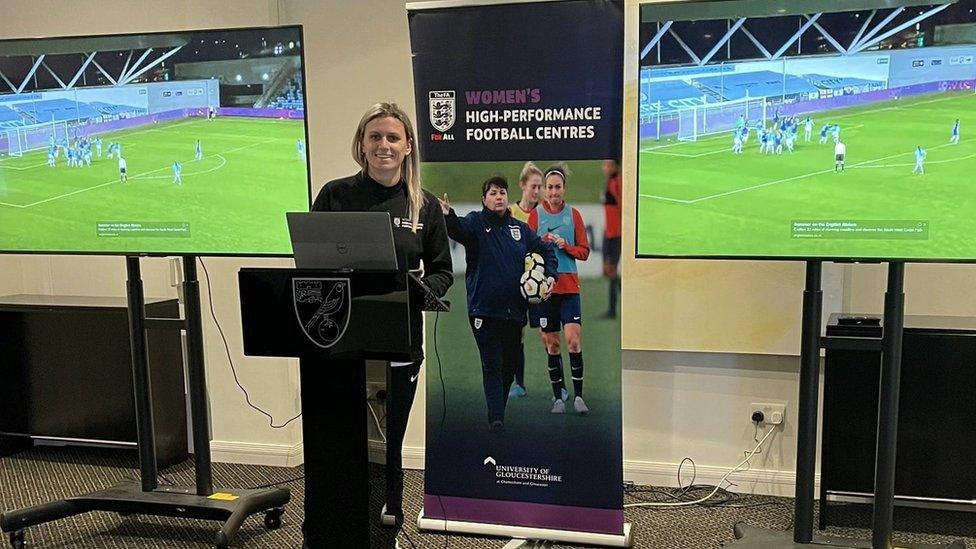
Abbie Sadler said she kept replaying the videos on her phone because the women's team were "changing society"
Abbie Sadler, a development coach at one of the country's nine FA women's high performance football centres, said: "I was lucky enough to be at Wembley on Sunday [and] it was incredible to look around at all the full seats... the atmosphere was brilliant."
Ms Sadler, who is based at the University of Gloucestershire, said she was "one of those girls who was told I couldn't play on a boys team because I was a girl".
But her determination and a love for the game kept her going, "the same as all the other females who have been through that," she added.
She joined Gloucester City girls team when it started and "about 10 girls were there... now there's a hundred girls playing there each week.
"Seeing the development of the game, I think now women's football is going to be bigger than it's ever been," she added.
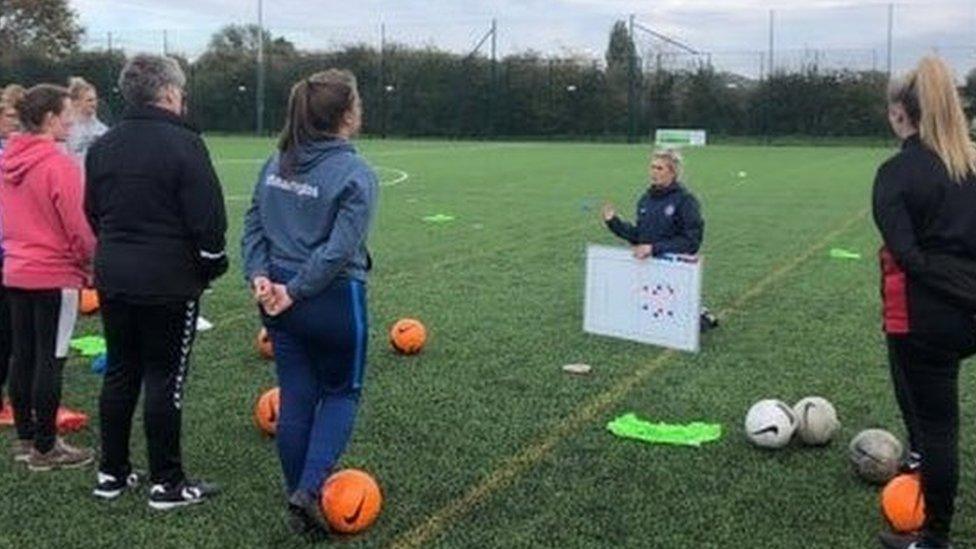
Ms Sadler said watching the Euro's final at Wembley was "an emotional as well as a proud moment for women's football"
Ms Sadler said someone told her the Women's Euros had been "the best marketing campaign ever in women's football".
"And I think they're right.
"Not only do you see young girls having role models, and opportunities to coach and play in the game as a career...
"You also see men wearing Lioness football shirts with the names of Lionesses on the back, not the names of male footballers."
"It is so important to progress and the Euros have given us a platform to do that," she added.

Follow BBC West on Facebook, external, Twitter, external and Instagram, external. Send your story ideas to: bristol@bbc.co.uk , external
Related topics
- Attribution
- Published3 August 2022
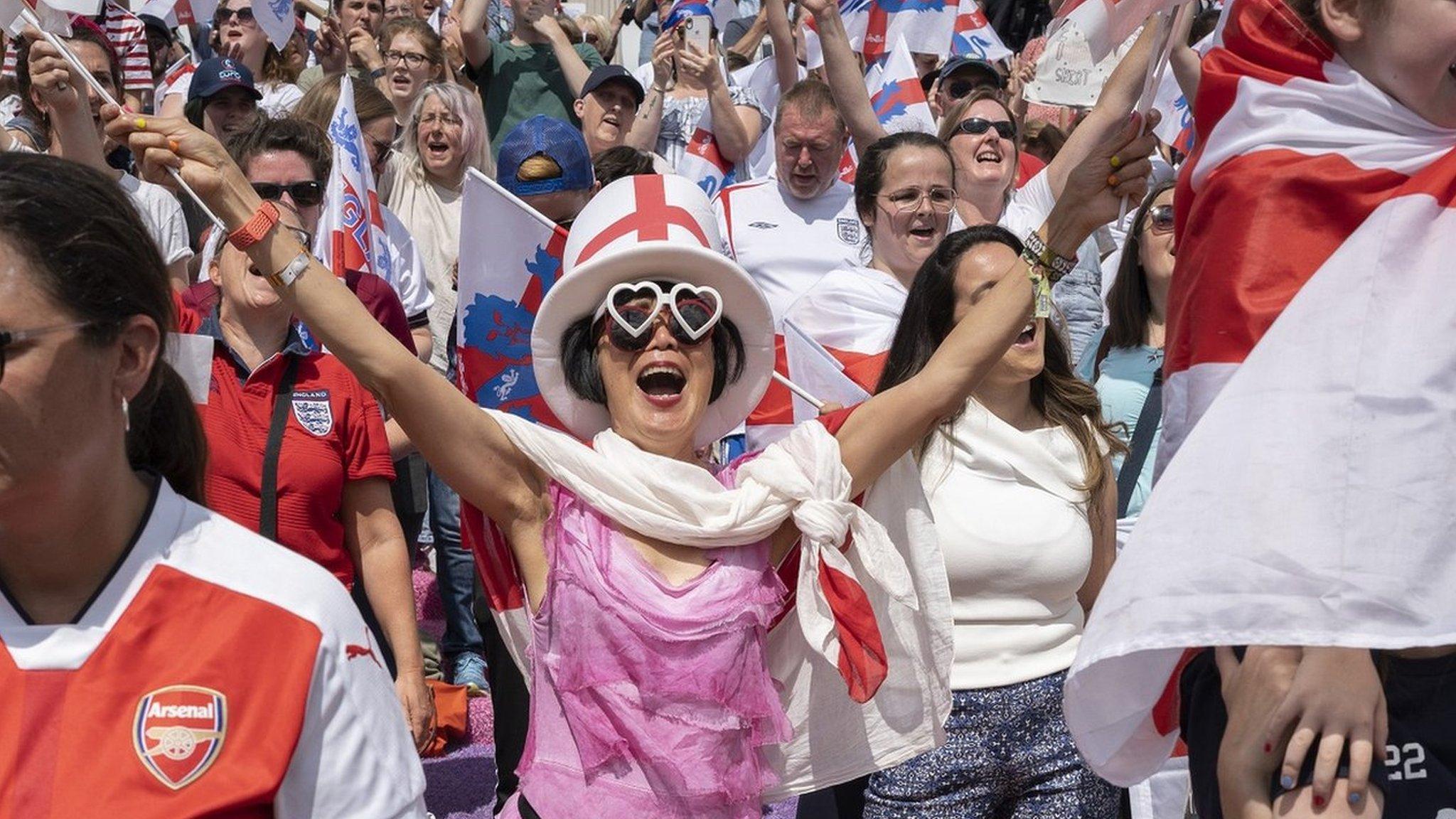
- Attribution
- Published3 August 2022
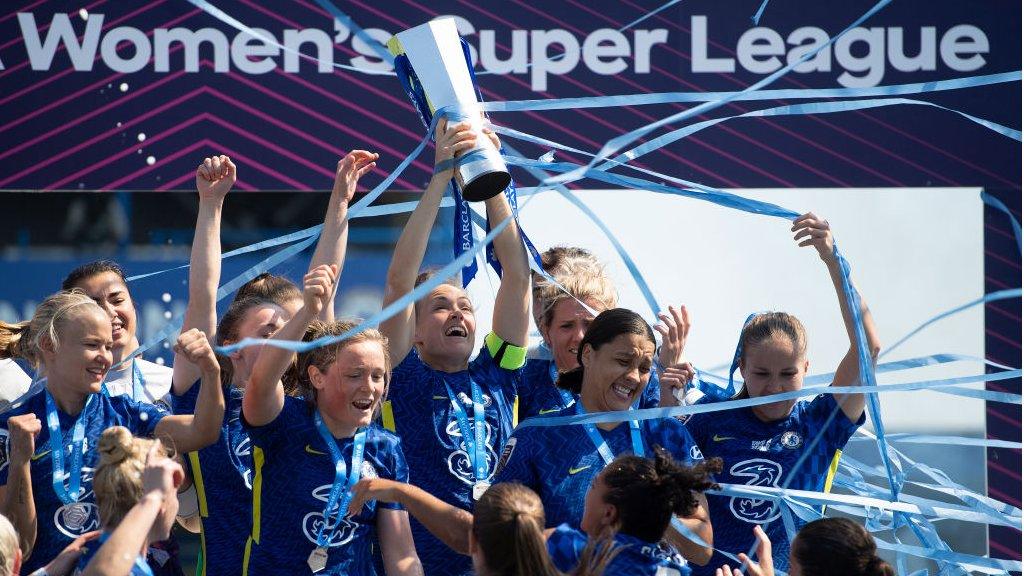
- Published1 August 2022
